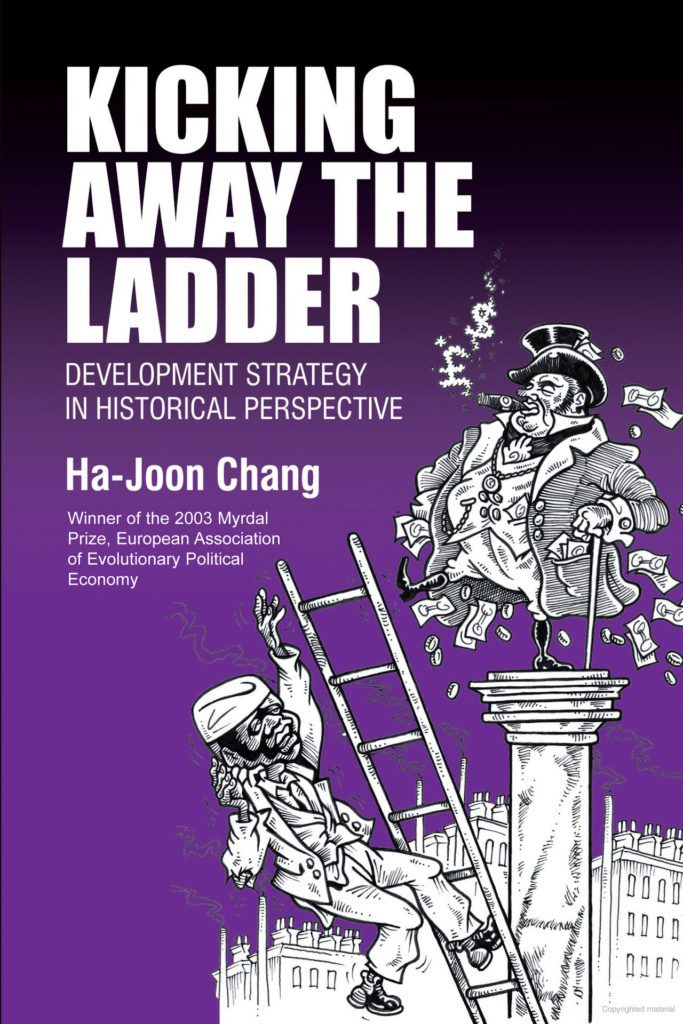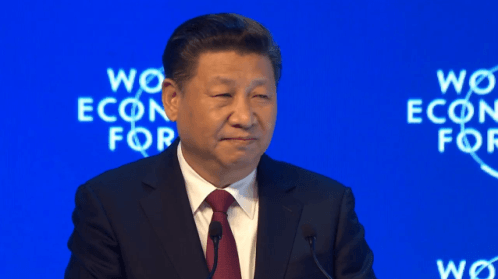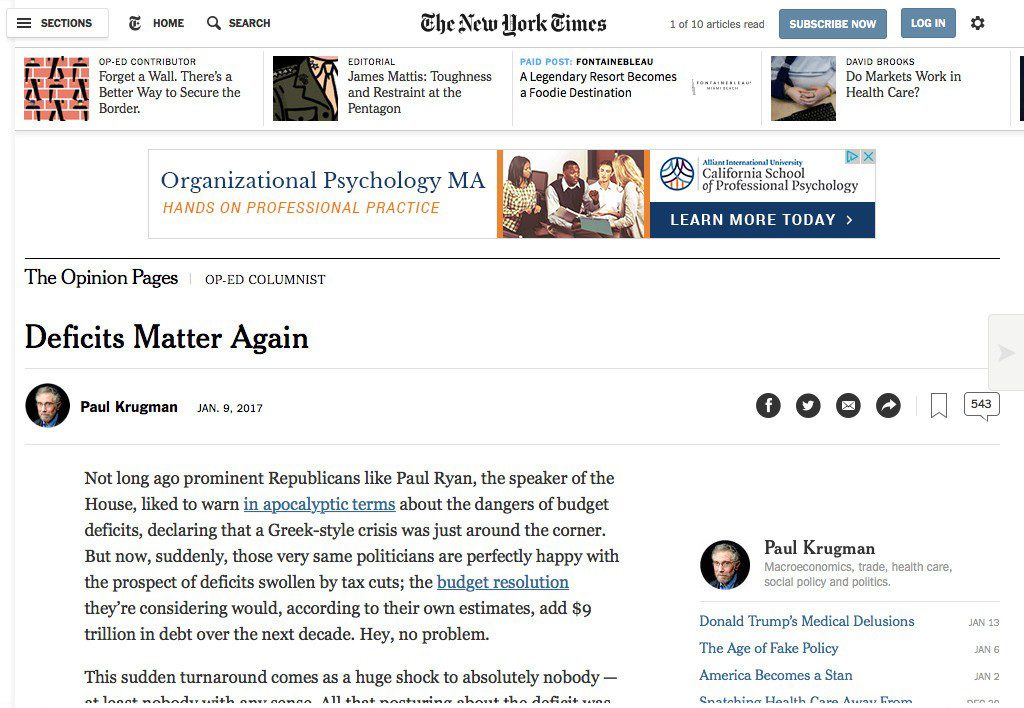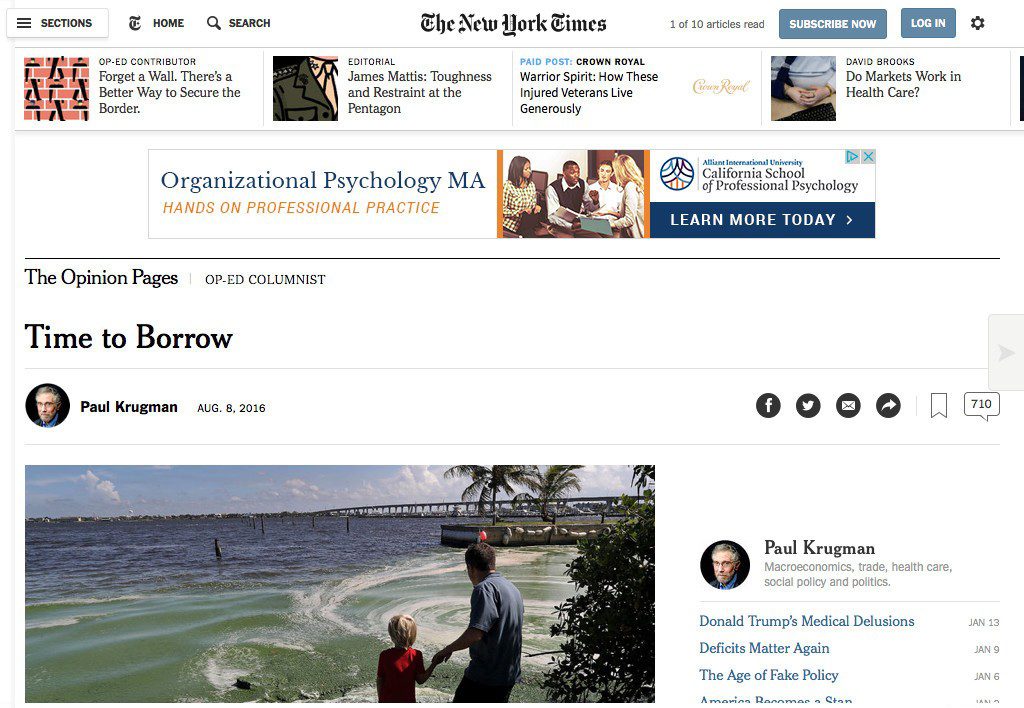In a recent article for Foreign Policy, Dani Rodrik makes this claim:
Meanwhile, economists rightly point out that trade is only weakly implicated in the major economic problems of the day — deindustrialization and income inequality. They are correct that the distributional consequences of trade are better addressed with safety net programs and nontrade remedies. But they have systematically downplayed these consequences — especially when the requisite compensatory programs have remained on paper. And they seem unable to grasp the valid core of the public’s concern about social dumping.
It’s a bit disappointing that Dani Rodrik who presents himself as a dissenter is towing the line of the New Consensus. The new trade theory, which is a part of the new consensus says that free trade is fine as long as losers are compensated. In this article Rodrik states the same but just takes issue on the latter part, i.e., compensation.
This line of argument is deeply flawed. An individual country’s growth has a deflationary bias because free trade puts a rein on fiscal policy to achieve full employment. So who is there to compensate? Moreover, it’s not comparative advantage which governs economic dynamics but absolute advantage via Gunnar Myrdal’s principle of circular and cumulative advantage . As Nicholas Kaldor says, “success breeds further success and failure begets more failure.”
Moreover it’s the the whole world economy which has a deflationary bias because of free trade as pointed out by Nicholas Kaldor in his 1980 article Foundations And Implications Of Free Trade Theory
In a recent article on the ‘Causes of Growth and Recession in World Trade’,1 T. F. Cripps has demonstrated that a country is not ‘balance of payments constrained’ if its full employment imports, M*, are less that its import capacity M̅ (as determined by its earning from exports). Such a country is free to choose the level of domestic demand which it considers optimal for its own circumstances,2 whereas the other countries from whom M* > M̅, must, under conditions of free trade, reduce their output and employment below the full employment level, and import only what they can afford to finance. He then shows that the sum of imports of the ‘unconstrained’ countries determine the attainable level of production and employment of the ‘constrained’ countries, and the remedy for this situation requires measures that increase the level of ‘full-employment’ imports or else reduce the export share of the ‘unconstrained countries’. The ‘rules of the game’ which would be capable of securing growth and stability in international trade, and of restoring the production of the ‘constrained’ countries to full employment levels, may require discriminatory measure of import control, of the type envisaged in the famous ‘scarce currency clause’ of the Bretton Woods agreement.
In the absence of such measures all countries may suffer a slower rate of growth and a lower level of output and employment, and not only the group of countries whose economic activity is ‘balance-of-payments constrained’. This is because the ‘surplus’ countries’ own exports will be lower with the shrinkage of world trade, and they may not offset this (or not adequately) by domestic reflationary measures so that their imports will also be lower. Provided that the import regulations introduced relate to import propensities (i.e. to the relation of imports to domestic output) and not to the absolute level of imports as such, the very fact that such measures will raise the trade, production and employment of the ‘constrained’ countries will mean that the volume of exports and domestic income of the ‘unconstrained’ countries will also be greater, despite the downward change in their share of world exports.3
Footnotes:
1Cambridge Economic Policy Review (March 1978), pp, 37-43.
2Owing to the widespread view according to which a given increase in effective demand is more ‘inflationary’ in its consequences if brought about by budgetary measure than if it is the result of additional investment or exports (irrespective of any limitations of import capacity) the inequality or potential inequality in its payments balance may cause a surplus country to regard a lower level of domestic demand as ‘optimal’ in the first case than in the second case.
3In other words, if countries whose ‘full employment’ balance of payments shows a surplus because M* < α W (where M* is the level of full employment imports, α is the share of a particular country’s exports of in world trade W) after a reduction of α to α̂ (α̂ < α) through the imposition of discriminatory measures, the country will still be better off if α̂ W* > α W where W* is the volume of world trade generated under full employment conditions.
Of course, the solution is hard and in my opinion, international agreements to reach balanced trade is the correct way. Free trade is the most sacred tenet in all of macroeconomics and it’s not going to be easy to get rid of it.



